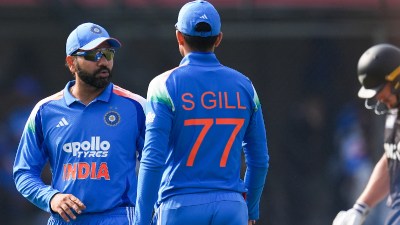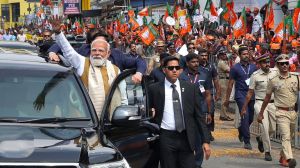Question won8217;t die
Six decades later, our mind is haunted by one question-why did Nathuram Godse and his five friends...

Six decades later, our mind is haunted by one question 8212; why did Nathuram Godse and his five friends assassinate Mahatma Gandhi. Vishnu Kadkade, Narayan Apte, Gopal Godse, Digambar Badge and Madanlal Pahwa were all deeply influenced by Veer Savarkar8217;s ideology.
They were against the formation of Pakistan, but did not realise that Gandhi himself was opposed to the division of India. In fact, Gandhi had made a valiant case for a united India to Sardar Patel. The Mahatma even tried to persuade Lord Mountbatten against partition of the country. However, neither Mountbatten and Jinnah nor Patel along with other Congress leaders could ever foresee that the violence in the division8217;s aftermath could be as pervasive as to claim 12 lakh innocent lives. All they could see was an end to the political bickering.
How could Hindu fanatics kill a man who was against the formation of Pakistan, and was a believer in Lord Rama and Gita, is a question that still bothers us after 60 years. Godse was not even a believer 8212; he refused to enter Lakshminarayan temple in Delhi with the others just before carrying out the assassination.
The conspirators assassinated Gandhi because he fought for Pakistan8217;s legitimate share in undivided India8217;s treasury under the terms of the agreement, by which 80 per cent share of treasury was to be given to India and 20 per cent to Pakistan. As Pakistan faced bankruptcy, Mountbatten made a personal plea to Gandhi that India should not back out from the agreement. Gandhi announced a fast unto death, not just for Pakistan8217;s share, but also for an end to violence against Muslims living in India.
Rust in the frame
Not a month passes by when the department of personnel does not get an application for voluntary retirement by a civil servant. Many of India8217;s bureaucrats are no longer finding their jobs attractive 8212; they are in turn being lured by private organisations with higher remuneration.
A pointer to the government8217;s concern over the situation came recently, when the Union Public Service Commission notified a total of 671 vacancies for civil services examinations this year. Of these,110 vacancies are for the IAS alone, when the average IAS intake has been at 65 seats in the last few years. This number is expected to shoot up to 130 in the next two years.
Moreover, a new government order aims to entitle IAS officers to higher pay and eligibility for commissioner or secretary-level posts in their cadre states after 14 years in service 8212; two years less than what the current norms stipulate. There may be more doles in store for our bureaucrats when the 6th Pay Commission presents its report.
But civil servants8217; salaries are still meagre compared to those of their counterparts in the private sector. The prestige and aura associated with being a civil servant that used to be a major draw till a few years ago has also tapered off.
We should look at a bottom-up overhaul of the civil administration, beginning with suitable amendments in job descriptions and responsibilities.
The writer is a Congress MP in Rajya Sabha
- 01
- 02
- 03
- 04
- 05































